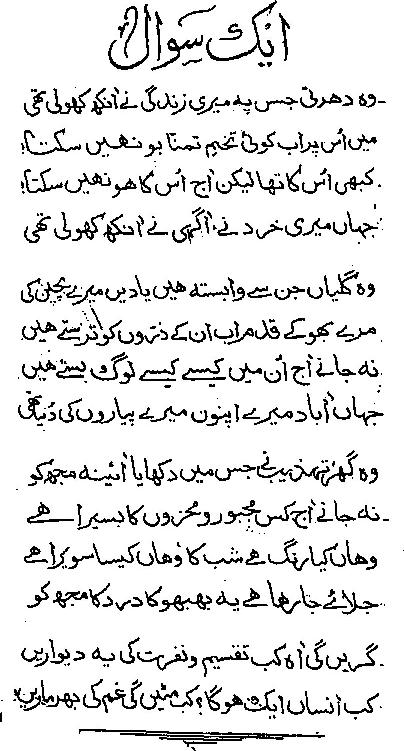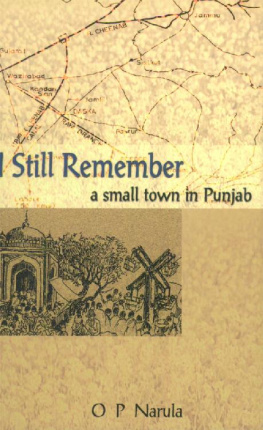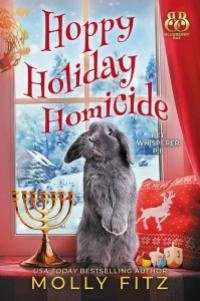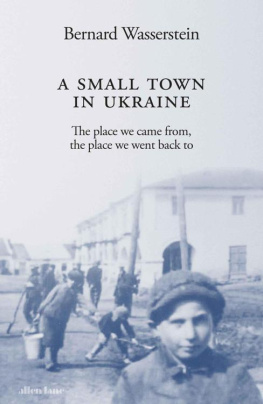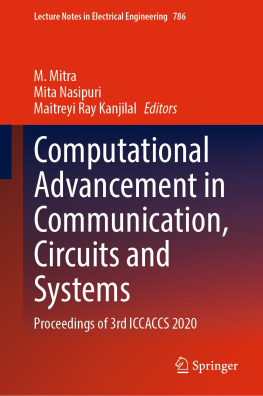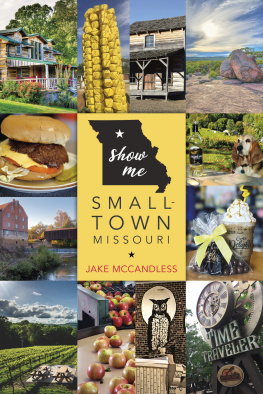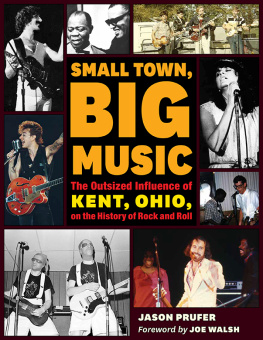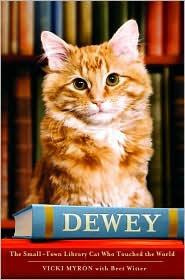C hange had not touched it for generations. Daska, the small town in undivided Punjab, lived life predictably. Here, boy never met girl, but romance flourished through glances exchanged over rooftops, only to be nipped in the but by parents. The mix of many communities Hindu, Muslim, Sikh and Christian-lived within the boundaries erected by tradition and interacted accordingly. All was transparent and contained.
Even strangers and visitors came as well identified entities. Men of the Hatoo community of Kasmir came down regularly to Daska to escape the harsh winter and to earn a living for the season. The much travelled Bhatras, the clan of colourful fortune-tellers who roamed the world across Europe, Africa and Arabia, landed up all at once at Daska, every two or three years, as if by some mysterious signal.
The village of Kandan Sian had its own ghosts, dains, and special odd characters. Fairs, festivals and seasonal practices added the spice to life's simplicity. The sultry summer nights, for example, saw village lads carrying their string-cots to the fields where the cattle had been tethered. Under the stars, he cattle lowed in relief from the heat and manured the field, while the; boys had their bit of fun on their nitihts out from strict homes.
The author has lovingly picked details from a remarkable store of memory, to bring alive an era abruptly extinguished by Partition. The reader can expect to be transported, in every sense of the word.
O. P. Narula born and brought-up in West Punjab, where he lived for twenty three years, had the good fortune to absorb the rustic and rich culture of that beautiful land and its virile people till the partition tore it apart. Joining the army immediately after, he spent twenty four years with the Corps of Engineers, building prestigious projects like Naval Dockyard Bombay, Port Blair, Chandi Mandir Cantonment, Hill Road, Bhutan.
Later for fifteen years as a Technocrat, he was the founder Chairman of Dredging Corporation of India, CMD of Engineering Projects (India) Ltd., and Regional Advisor in UNESCAP.
He is now retired and his main love now is gardening, Urdu and Punjabi poetry, and reminiscences of the past.
COVER DESIGN: ARRT CREATIONS
COVER ILLUSTRATION: S. K. SAMANTA
I Still Remember
A Small Town In Punjab
S RISHTI P UBLISHERS & D ISTRIBUTORS
64-A, Adhchini
Sri Aurobindo Marg
New Delhi 110 017
srishtipublishers@forindia.com
Copyright O.P. Narula 2002
First published in 2002 by
Srishti Publishers & Distributors
ISBN 81-87075-85-6
Inside Illustrations by Vikram Nayak
Cover Design by Arrt Creations
45 Nehru Apartment, Kalkaji, New Delhi 110 019
arrt@vsnl.com
All rights reserved. No part of this publication may be reproduced, stored in a retrieval system, or transmitted, in any form or by any means, electronic, mechanical, photocopying, recording, or other wise, without the prior written permission of the Publisher.
Dedicated to the memory of my beloved father
QUESTIONING
The land which gave life's first light to my eyes,
no more can I sow dreams in its dear soil.
Once her own child, I can never again belong
to her, O land of my awakening mind and heart.
Those lanes my childhood years still haunt in time past,
whose grains of dust my famished feet now yearn for,
who are they now who huddle in its dwellings?
in the homes of my near ones, their very world.
That house whose walls held up to me the mirror of my culture
who lives in it today pushed willfully by fate?
What light plays within its rooms, what shades
of twilight, what glad tints of dawn?
Pain, like a flaming wind, sears my nights and days.
The wall of hate, dividing heart from heart, when will it fall?
When will we meet, the storm of sorrow end when?
(Urdu poem by Inder Sarup Datt rendered into English by Seema Sharma)
CONTENTS
INTRODUCTION
This little book records the extraordinary ordinariness of life less than a generation ago in and around the small Punjabi town of Daska. In the course of a just few decades, that pristine ordinariness and simplicity has ebbed away into the realm of the exotic within today's dizzy life.
Opana describes a living community with its own homegrown tradition, its folklore, fairs, festivals, customs, myths and stories and not least, the local characters each more peculiar and unique than the other, but assured of a niche in the space of old-fashioned society.
Opana's own story takes us through the land and its landscapes that nutured a vibrant culture. The land divided, the community scattered, the life-experience of a generation ago is now beyond the imagination and below the level vision of recorded history. Therefore, this simple narrative has immense value, recording the loves and hates, fraternal exchanges and fratricide, the small-scale cruelties and petty rivalries alongside greatness of heart and the earthiness of this valley with its legendary poetry and romance. It is a glimpse into the text of a people's history.
The Partition, which drew the line dividing the Indus Valley also, obliterated a way of life that evolved from its pre-historic source, down the many millennia in the land of five rivers, nay six.
To the men and women who were the children of the thirties in Punjab, the names of Daska, Kandan Sian and Gujranwalla will ring more true than the unreality of an altered life after the Partition. These men and women living as senior citizens in Pakistan, India or other countries of the world, will welcome this book that tells their story. All of us will cherish the snapshots of life it presents a part of our heritage - the all but lost narrative of our yesterday.
| Seema Sharma | 1 August 2001 |
AUTHOR'S NOTE
This is the story of Opana who was born in a very small village of the undivided Punjab, lived and grew up there till he could live there no longer. He partook of the rich culture of the land of Waris Shah, Buleh Shah, Kabir, Farid, the ten Sikh gurus and lived through those tumultuous years before Punjab was partitioned and then, in youth, was driven out of his village Kandan Sain where he was born, his small town Daska where he had grown up and Lahore where he had got his education. Uprooted at the age of twenty-three this village boy wandered about aimlessly till the Indian Army offered him a career which ended at the United Nations. He never forgot his village, his town and the varied and rich culture of the simple folk. Opana's story tries to re-capture and relive those beautiful days and nights spent in the land which became Pakistan.
The story begins in 1947 at Lahore, at the time he became homeless and goes back over nearly twentyfive years to relive in the past. His memories are built around Kandan Sian, the Chhathi Gali, Tootian Wala Khoo, red blood maltas, (hard skin oranges) freshly cooked gur (jaggery) and abu (roasted wheat sheafs); and the unforgettable personalities encountered in the early years around Daska in the Qabar Bazar: Baba Wadhaya, Rama Mota, teachers like Hussian Bux the sadist, Faqir Chand the Maula Bakhsh expert, Mool Chand, Gurdit Chand and Head Master Sham Sunder Singh and those in Lahore: Om Mohan, Professors Diwan Chand, G.L. Datta, Shanti Swaroop Bhoomitre and friends like Pashi, Gobinder, Madan, Zaffar and Hafeez.


